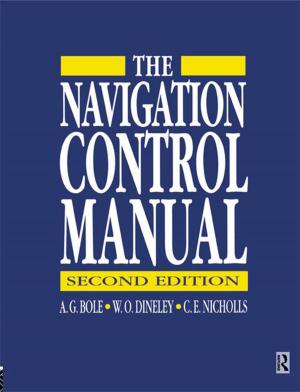The Interdependent Organization
The Path to a More Sustainable Enterprise
Business & Finance, Business Reference, Business Ethics, Management & Leadership, Planning & Forecasting| Author: | Rexford H. Draman | ISBN: | 9781351285261 |
| Publisher: | Taylor and Francis | Publication: | September 8, 2017 |
| Imprint: | Routledge | Language: | English |
| Author: | Rexford H. Draman |
| ISBN: | 9781351285261 |
| Publisher: | Taylor and Francis |
| Publication: | September 8, 2017 |
| Imprint: | Routledge |
| Language: | English |
The Interdependent Organization provides its readers with a template for the development of an individualized transition plan to guide their journey toward becoming more organizationally sustainable. We as humans tend to rely on our current set of assumptions when we evaluate our actions and their potential impact on the future. With today’s ever-increasing rate of change in technology, our access to information, and cultural interactions (interdependence) around the world, the reliance on old ways of thinking (linear) will not allow us to effectively transition into the systems-based world of tomorrow.
The Interdependent Organization presents a deeper understanding of the financial, operational, and cultural crossroads we are facing as a planet, and introduces a systems-based transitional path that individuals, organizations, and societies can draw on to move towards a more holistic and sustainable future. The book provides readers with the necessary understanding and insight into systems, systems-thinking, and the use of systems-based business tools to guide the sustainability journey while producing a positive impact to the organization’s bottom-line, its employee engagement, and its stakeholders’ expectations in each of the journey's three stages. The journey begins with the adoption of simple yet powerful systems-based tools for managing the organization’s operations and projects. These proven tools provide increased productivity with a proven bottom-line improvement that exceeds 30%. This introduction to systems-based tools and thinking provides the organization with the time to become more familiar with this new way of thinking and making business decisions before they expand their exposure to broader, more complex systems-based and sustainable practices. The second stage of this journey is focused on introducing new tools and practices to insure a consistent set of measures are used across the organization. The third and final stage focuses on aligning the organization’s people-management practices.
The Interdependent Organization provides its readers with a template for the development of an individualized transition plan to guide their journey toward becoming more organizationally sustainable. We as humans tend to rely on our current set of assumptions when we evaluate our actions and their potential impact on the future. With today’s ever-increasing rate of change in technology, our access to information, and cultural interactions (interdependence) around the world, the reliance on old ways of thinking (linear) will not allow us to effectively transition into the systems-based world of tomorrow.
The Interdependent Organization presents a deeper understanding of the financial, operational, and cultural crossroads we are facing as a planet, and introduces a systems-based transitional path that individuals, organizations, and societies can draw on to move towards a more holistic and sustainable future. The book provides readers with the necessary understanding and insight into systems, systems-thinking, and the use of systems-based business tools to guide the sustainability journey while producing a positive impact to the organization’s bottom-line, its employee engagement, and its stakeholders’ expectations in each of the journey's three stages. The journey begins with the adoption of simple yet powerful systems-based tools for managing the organization’s operations and projects. These proven tools provide increased productivity with a proven bottom-line improvement that exceeds 30%. This introduction to systems-based tools and thinking provides the organization with the time to become more familiar with this new way of thinking and making business decisions before they expand their exposure to broader, more complex systems-based and sustainable practices. The second stage of this journey is focused on introducing new tools and practices to insure a consistent set of measures are used across the organization. The third and final stage focuses on aligning the organization’s people-management practices.















